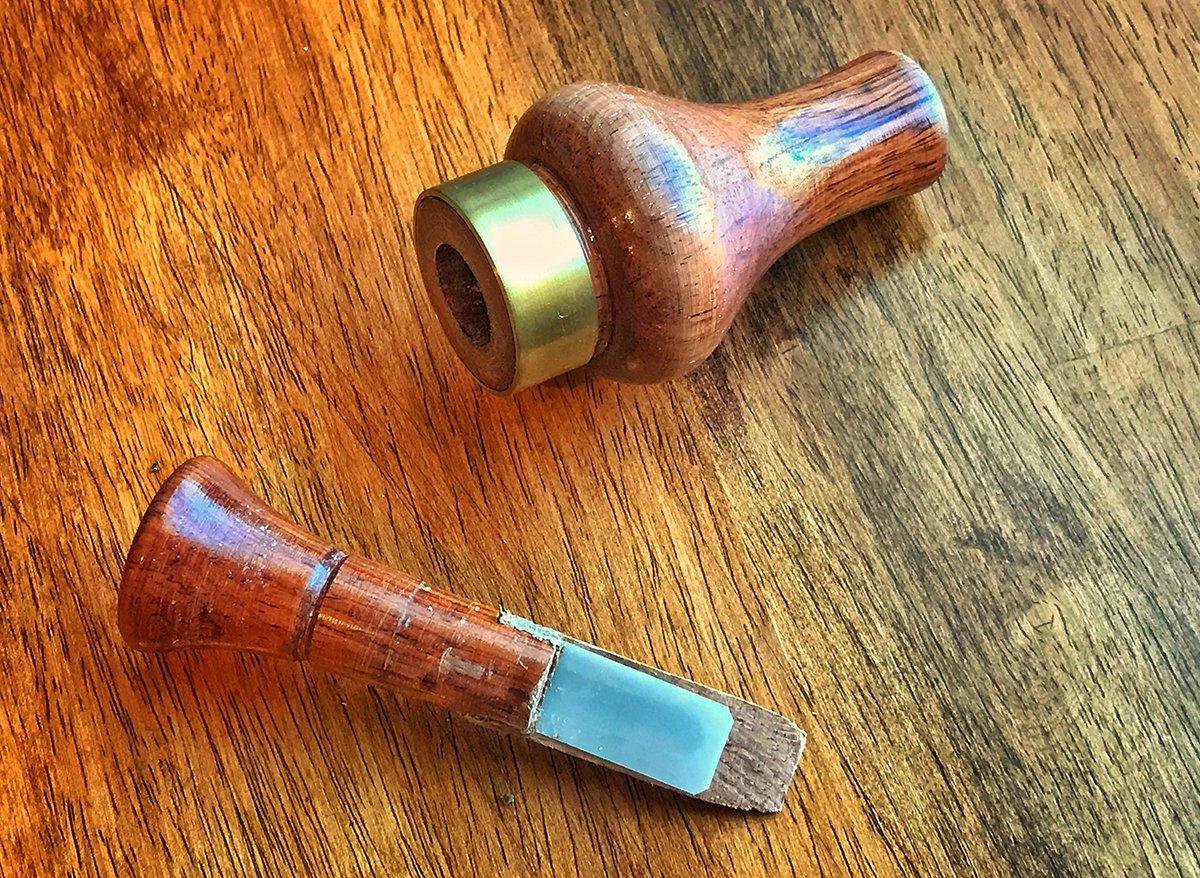Off-season maintenance, cleaning pay big dividends come fall
Admittedly, I use a fairly common off-season maintenance routine for my duck and goose calls. That is, I hang them in a closet and typically forget about them until summer.
Big mistake.
Like any piece of waterfowl hunting equipment, calls require some cleaning, tweaking and general maintenance from time to time. Otherwise, their performance might diminish.
So, don't be like me. Listen to how the pros keep their duck and goose calls sounding great all year.
Tony Vandemore
The owner of Habitat Flats in Sumner, Missouri, Vandemore begins guiding each fall in Canada and hunts through the end of his home-state's season. Then he turns around and chases snow geese in spring. Obviously, his calls get a workout, so he gives them some much-needed attention when necessary.
Call maintenance in the off-season depends on how much you are using your call, he said. A call you do nothing to will become flat over time and with frequent use. The cork drying out can change the tone of the call. Myself and my guides are usually cutting new reeds every day or two during the season, as the ends can begin to delaminate from use and flatten out the tone. We generally replace corks every handful of days, as well. A duck call is a musical instrument, and like most musical instruments, it requires some attention whether you're using it every day or not using it much at all.
John Vaca
Vaca, national pro-staff manager for Vista Outdoors, has guided waterfowl hunters for 32 years and competed on the calling circuit for many seasons. Like Vandemore, Vaca said call maintenance hinges greatly on usage.
For a hunting call, if it sounds good, I leave it alone until I have to take it apart, he said. Sometimes, that call is set just right, and I don't want to take the chance of not being able to get it back to perfect. Contest calls are taken apart and tweaked daily. New reeds can be a daily routine when practicing for the next contest event."
And what if folks do nothing with their calls for years?
Some callers, this won't affect much, because some callers don't practice enough to know the difference, Vaca said. But the dedicated caller will notice that reeds aren't oscillating as much as they did when the call was freshly tuned, or that the top end just isn't there anymore. After a while, saliva will build up and almost glue some corks/wedges and reeds together, hindering the total movement of the reed. A periodic tune-up will keep the call clean and performing to the satisfaction of most callers.
John Gordon
Having guided hunters in Texas and Mississippi and on snow goose hunts, Gordon, who handles media and public relations for Banded and Avery, uses a strict call-maintenance regimen.
I break down all my calls at the end of every season and give them a thorough cleaning with hot water, he said. I don't use soaps, as they leave residue. You don't have to change the cork then; only if it's cracked or worn. But it's a good idea to replace it at least every other season. Check the reed for cracks, as well. When I was guiding, I cleaned my calls every week, but of course, that was when they received a lot of use.
If you don't clean the call, eventually it will lose tone and clarity. It's just the same as never cleaning your shotgun. It will affect the performance sooner than later.
Chad Belding
Belding, host of Banded's The Fowl Life, cleans the barrels and inserts of his calls with warm water to remove food or debris. He replaces the corks in his duck calls twice per month while practicing in the off-season, and switches out the reed in his single-reed duck call if it has begun to crack or bubble.
For goose calls, Belding changes the reed when he notices a large bubble. He lets small bubbles go, as the calls can still produce authentic sounds.
I always keep my calls out of really hot temperatures or hanging from my rearview mirror during the hot summer months, he said. I also try not to let anyone mess with the actual calls I hunt with. Most callers are very particular and personal with their calls.
As such, he always keeps them in top shape.
By letting maintenance fall to the wayside, calls will lose their performance level and their ability to produce the authentic duck and goose sounds that waterfowl hunters are looking for, he said. Letting debris build up in a call only prohibits the reed from working in conjunction with the sound board of any call. Replacing corks and broken reeds is a must. It would be like trying to hit a baseball with a broken wooden bat or one with a hole drilled straight through it. Equipment for waterfowl must be kept up on a yearly basis, and we are always working with our dogs, boats, UTVs, ATVs, guns and blinds. Calls should be part of our maintenance schedule, giving us the ability to practice with emphasis in the off-season. This will make us a better all-around duck and goose hunter once the season comes in.
Don't Ignore 'Em
The consensus is clear: Give your calls some TLC this off-season. In fact, I think I'll dig mine out of the closet, clean them up and check the reeds and corks. It will surely help when the game gets real in a few months.
Click here for more Realtree waterfowl hunting content. And check us out on Facebook.







